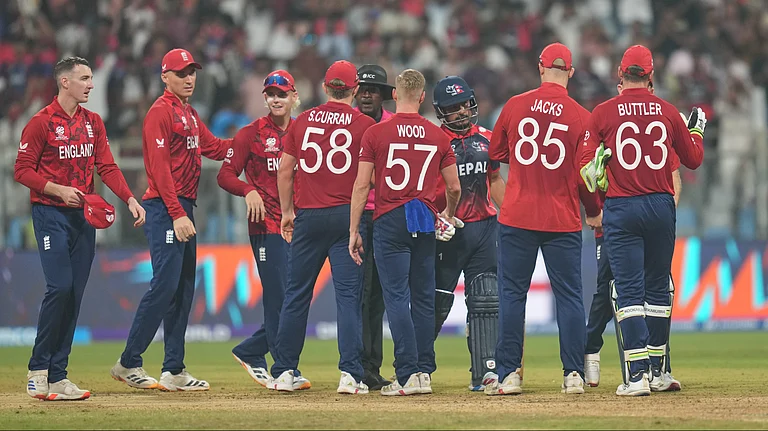Aakash Kaushik, a well-known writer in the Hindi film industry, has written for several big-budget films including the recent blockbuster of the year 2022, the Kartik Aaryan and Kiara Advani starrer ‘Bhool Bhulaiyaa 2’ and the latest ‘Thank God’ starring Ajay Devgn and Sidharth Malhotra.
Talking to Prateek Sur from Outlook, he opens up about how he sees films and content, as a whole, in today’s times. Excerpts:
Content is the king today but still, the content maker isn't known to many. What’s your take on this?
The difference between a good and a bad film lies in the script. Yet, more attention is paid to the visual appeal of the film, which is heavily budgeted, right from the actor's appearance to the way scenes are shot. Rarely does the person behind the film’s script get the spotlight. People will be able to name the top three dress designers, but they could struggle to name the top three writers. I wish that would change. Today as audiences recognise the power of content, it's high time due acknowledgement is given to the people behind the content.
The concept of your recent release, ‘Thank God’ isn't usual. So how did this come up and what was the process of writing the story?
I was given the concept idea by the director. It comes from a Norwegian movie to which we have the rights. That being said, we have written our story differently. The idea was to adapt it for Indian audiences. As an original approach to the topic, we added figures from Indian mythology, such as Chitragupt. Chitraguptji hain jo humara paap aur punya ka hisaab rakhte hain. That's when I came up with the idea that lets make the character of the game show host which is in the original script as Chitraguptji. Here he makes paap and punya ka hisaab through a game show instead of his book. My grandmom used to say when someone did something wrong "is aadmi ka paap ka ghada bhar chuka hain ''. So we came up with the concept of two jars, one which has black balls and the other with white balls and made them 'paap ka ghada' and 'punya ka ghada'. When we tweaked the story with our cultural elements, it became quite interesting.
What sort of challenges did you face while writing this film?
‘Thank God’ discusses the idea of god and how people should conduct their lives. We had to exercise considerable caution when discussing such a subject. That was one of our major challenges. Another challenge was, making sure that nothing was preachy. There was the risk of today’s generation dismissing it saying ‘Faltu Gyan Mat Do!’. We had to ensure we presented the film as a lighthearted entertainer while keeping the message intact. These challenges made the process even more exciting.
Why do you think audiences shouldn’t miss watching ‘Thank God’?
Youngsters are unaware of many aspects of our culture. I was shocked to learn that they are unfamiliar with ‘Chitragupt’! I am very grateful to BR Chopraji and Ramanand Sagarji for making Ramayana and Mahabharata a television series. As children, we got to know more about our mythology in an entertaining way. I am not comparing this film to that. But Thank God has aspects related to our culture. Everyone can have a good time and learn a couple of things about life by watching this film. Another reason is that it is a family entertainment film, which is rare these days. People should go see the movie with their friends and family.
Lastly, have you witnessed any changes in the way stories are written considering we are living in the OTT-driven era of high-content concepts?
OTT has allowed writers to be more experimental. For theatrical films, commercial viability plays an integral role. It depends on the 'star' system. On OTT that is not the case. You can create fantastic OTT series or movies that will draw viewers with absolutely fresh actors. The content matters here. Instead of a star cast, money is spent on making the movie or television show for the web. Undoubtedly, OTT has given a platform for fresh ideas. Writers can now write stories, without worrying if they will get a green light for theatres. More avenues mean more opportunities to showcase your talent.



























